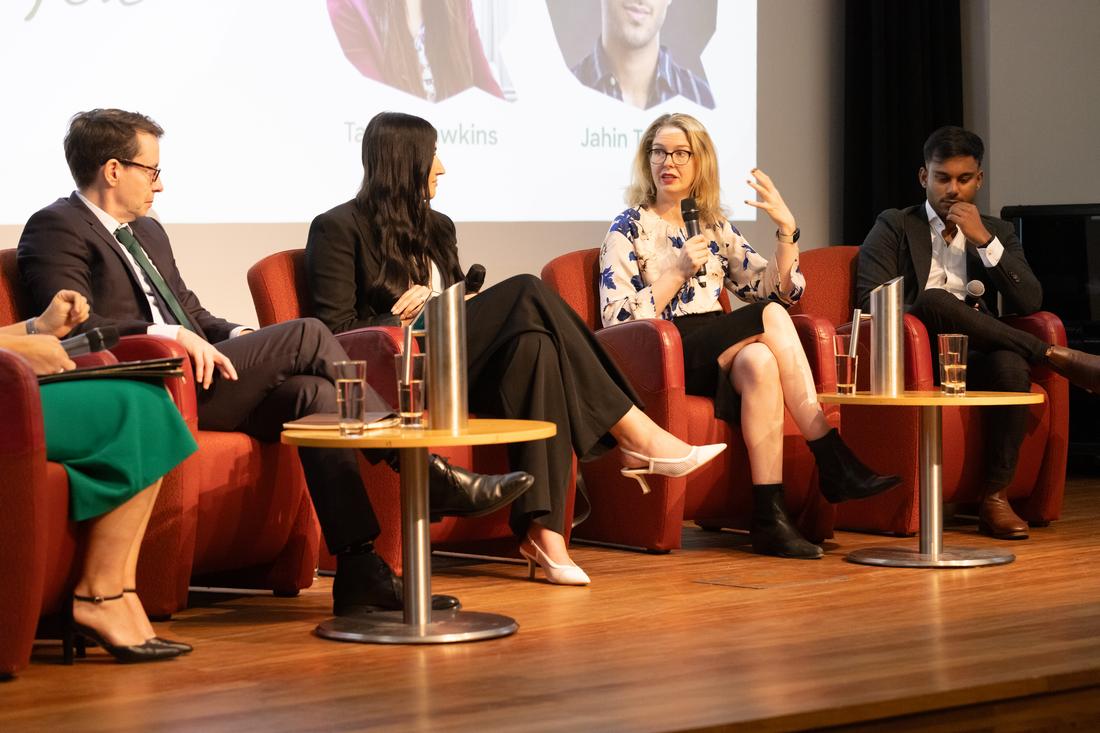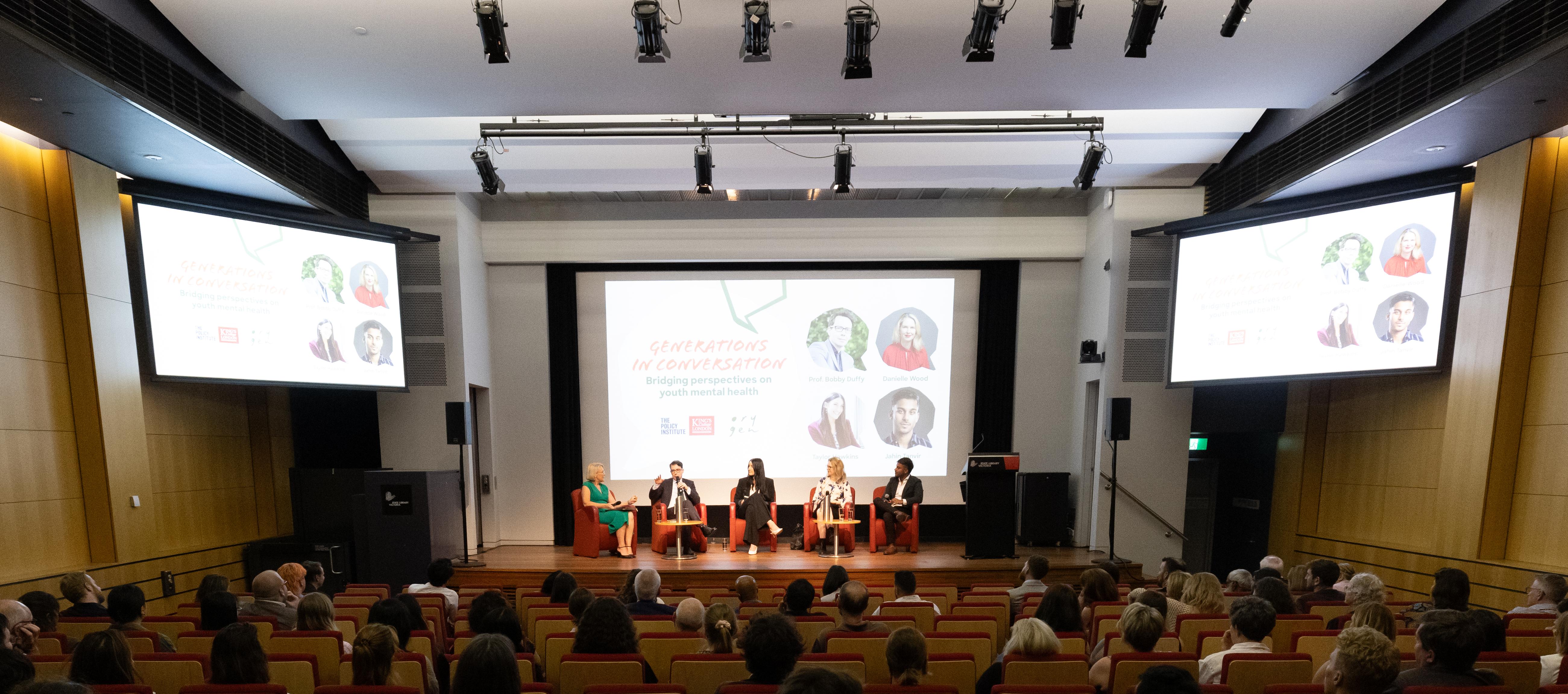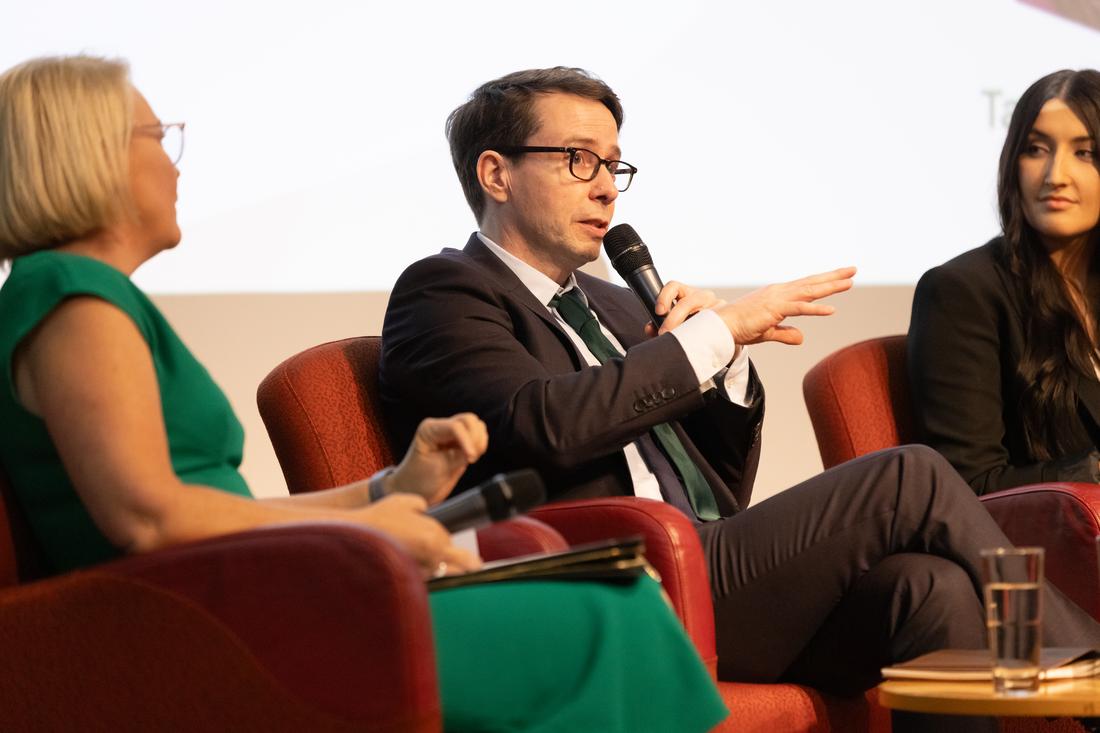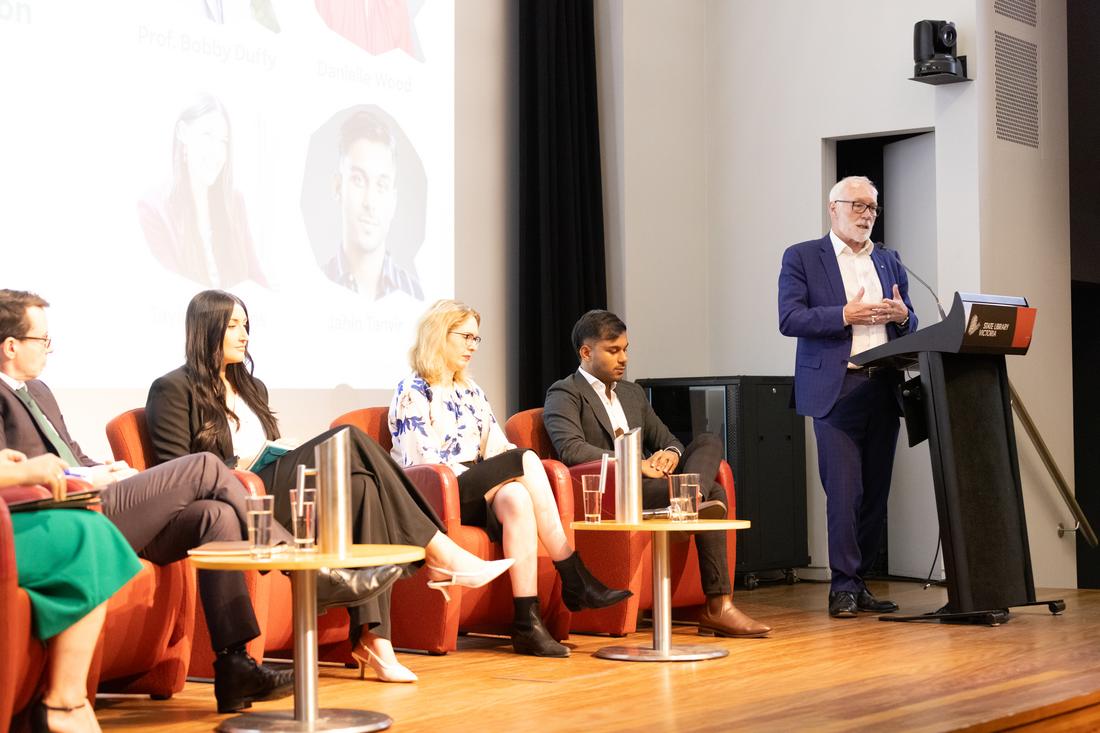
Ideas, inspiration and optimism emerged during a thought-provoking event exploring and debating the causes and solutions to the youth mental health crisis at the State Library of Victoria last night.
Professor Bobby Duffy from the Policy Institute at Kings College London, Danielle Wood, chair of the Productivity Commission, Taylor Hawkins, Managing Director of Foundations for Tomorrow and Jahin Tanvir, CEO of the Australian School of Entrepreneurship, joined the panel chaired by Heidi Murphy at a booked-out public event hosted by the Orygen Institute.
The panel discussion launched new data from Orygen and Kings College London which explored generational attitudes to youth mental health, and highlighted the shared attitudes of many people across different age groups.
Professor Pat McGorry introduced the event by saying it was important to "inject new voices" into discussions about youth mental health, and that is exactly what ensued in the lively hour-long discussion that followed.

Beginning with a look at the new data, Professor Duffy highlighted the similarities between attitudes in the UK and Australia, and revealed the significant agreement across generations when it comes to worsening youth mental health.
“Conflict is clickable – but there is not conflict here,” Professor Duffy said, explaining that while generational categories such as ‘Boomer’ and ‘Gen Z’ may reflect genuinely different experience, pitting the different generations against each other is counter-productive and often over-blown.
While the different generations agree youth mental health is declining, and level of worry for young people is increasing, older generations are more likely to blame smartphones and social media, Professor Duffy said, while young people acknowledged a more complex set of circumstances – such as cost of living and inability to afford housing – driving mental ill-health.

With the data confirming that youth mental health is a crucial issue for everyone, conversation turned to the social and economic impact of the crisis, and the need for urgent and coordinated action.
Danielle Wood told the panel that mental ill-health and suicide in Australia costs the country at least $200 billion per year, and added “this is a very widespread issue, and it comes with very big human costs, very big social costs and very big economic costs”.
Wood described the new survey data as a “call to arms for policy-makers”, given it shows widespread public support for action, and said “there are a number of things we could be doing that certainly seem to stack up in an economic sense, let alone a moral and ethical sense.”
Hearing key insights from younger generations was a highlight of the evening, as Taylor Hawkins and Jahin Tanvir spoke passionately about their roles as youth advocates and entrepreneurs.
Hawkins argued there is a need for more long-term thinking when it comes to mental health policy – and all government policy that affects the lives of young people – something that could be achieved through greater levels of empathy and intergenerational solidarity.
“I’m a big believer in intergenerational solidarity and I think all of our language should be rooted in that,” she said.
“The only way out of the sticky situation we find ourselves in is to work together.”

Tanvir spoke to the vital part young people should play in the development of policies that affect them, saying young people want to use their lived experience to contribute to lasting change.
“I think advocacy is one of the most pure forms of self-expression,” he said.
“You often hear about a lack of resilience but I think young people are trying to be resilient, we just have so few opportunities to develop those skills.”
The panellists agreed we need urgent action now – but also long-term thinking when it comes to turning the tide on the youth mental health crisis.
Pointing to the example of the Future Generations Commissioner in Wales, the panel discussed the challenges of creating effective policy within the short-term political cycle, and agreed that genuine systemic change, including what is needed to improve youth mental health, is difficult but vital.
Professor Duffy said “the case for prevention is always a hard sell for policymakers and politicians” but argued that intergenerational approaches are key. He argued that our biggest risk is not generational conflict but generational separation – saying that bringing people of different ages together in shared spaces to work together holds huge potential.
Danielle Wood made the point that “mental health has been the poor cousin to physical health for a long time due to ongoing stigma”, but said tackling the issue clearly made both social and economic sense, and had such broad support from the general public.
If last night’s discussion is anything go by, a shift is happening across the generations, with greater acknowledgement and understanding from people of all ages that the time to act is now.
Final thoughts from the panellists centred on the need for intergenerational collaboration, solidarity, advocacy and connection, ending on a hopeful note that we can tackle this crisis if we work together.